- You are here:
- Home »
- Food Substitutes
- » Best Substitutes For Coconut Flour
Best Substitutes For Coconut Flour
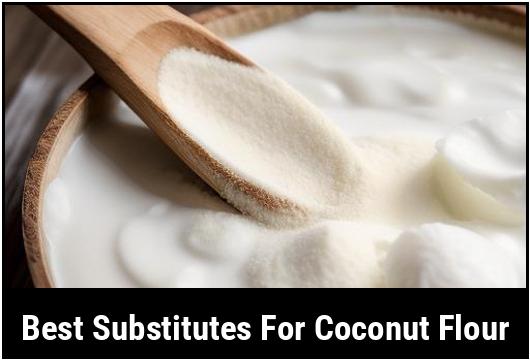
Coconut flour is a popular gluten-free flour that is often used in baking. Made from the dried and ground flesh of coconuts, it has a unique texture and a slightly sweet taste. However, if you have dietary restrictions or simply want to try something different, there are several excellent substitutes for coconut flour that you can use in your recipes. These substitutes not only mimic the texture and flavor of coconut flour but also offer their own nutritional benefits.
Key Takeaways
- Coconut flour is a gluten-free flour made from ground coconut flesh.
- There are several reasons why you might need a substitute for coconut flour, such as dietary restrictions or a desire to try new flavors.
- The best substitutes for coconut flour include almond flour, tapioca flour, oat flour, and rice flour.
- When choosing a substitute, consider the flavor, texture, and nutritional profile of each option.
Why You Need A Substitute For Coconut Flour
There are several reasons why you might need a substitute for coconut flour. The most common reason is dietary restrictions. Coconut flour is not suitable for those with nut allergies since it is made from coconuts, which are technically classified as a tree nut. Additionally, coconut flour is high in fiber and can cause digestive issues for some people.
Another reason why you might want a substitute for coconut flour is to explore new flavors and textures in your baking. While coconut flour adds a unique flavor to recipes, you might be looking for a different taste or have other ingredients that you want to shine.
Types Of Substitutes For Coconut Flour
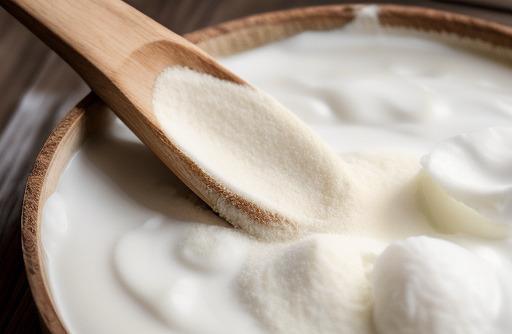
When looking for a substitute for coconut flour, it’s important to consider the texture, flavor, and nutritional profile of the alternative. Here are some popular substitutes for coconut flour:
-
Almond Flour: Almond flour is made from finely ground almonds and is a great substitute for coconut flour. It has a similar texture and adds a subtly sweet, nutty flavor to baked goods. Almond flour is also high in protein and healthy fats, making it a nutritious choice.
-
Tapioca Flour: Tapioca flour, also known as tapioca starch, is a starch extracted from the cassava root. It is a common ingredient in gluten-free baking and acts as a thickener. Tapioca flour has a neutral taste and adds a light and fluffy texture to recipes.
-
Oat Flour: Oat flour is made by grinding oats into a fine powder. It is a versatile flour that is often used in gluten-free baking. Oat flour has a mild, slightly nutty flavor and provides a hearty texture to baked goods.
-
Rice Flour: Rice flour is made from finely ground rice grains and is commonly used in Asian cuisine. It has a neutral taste and a light, fluffy texture. Rice flour can be used as a substitute for coconut flour in a variety of recipes.
Best Substitutes For Coconut Flour
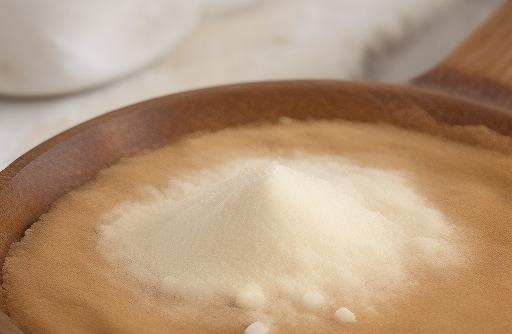
Now that we have looked at the types of substitutes for coconut flour, let’s explore the best options in more detail:
1. Almond Flour
Almond flour is an excellent substitute for coconut flour due to its similar texture and flavor. It is made by finely grinding blanched almonds, resulting in a light and fluffy flour. Almond flour works well in a variety of recipes, including cakes, muffins, and cookies. It adds a subtle sweetness and a nutty flavor to baked goods.
When using almond flour as a substitute for coconut flour, keep in mind that it is not as absorbent. You may need to increase the amount of liquid in your recipe to compensate. It is also important to note that almond flour is denser than coconut flour, so the end result may be slightly different in terms of texture.
2. Tapioca Flour
Tapioca flour is another great substitute for coconut flour, especially if you are looking for a neutral taste and a light texture. It is often used as a thickener in recipes and is known for its ability to create a pleasant chewiness in baked goods.
When using tapioca flour as a substitute for coconut flour, it is important to note that it is more absorbent. You may need to reduce the amount of flour called for in the recipe or increase the amount of liquid to achieve the desired consistency. Tapioca flour can also be used in combination with other flours to achieve the best results.
3. Oat Flour
Oat flour is a nutritious and versatile substitute for coconut flour. It is made by grinding rolled oats into a fine powder. Oat flour adds a pleasant taste and a hearty texture to baked goods.
When using oat flour as a substitute for coconut flour, it is important to consider the moisture content. Oat flour absorbs more liquid than coconut flour, so you may need to adjust the amount of liquid in the recipe. Oat flour can also be used in combination with other flours to achieve the desired texture.
4. Rice Flour
Rice flour is a popular substitute for coconut flour, especially in Asian cuisine. It is made from finely ground rice grains and has a neutral taste. Rice flour works well in a variety of recipes, including bread, pancakes, and cookies.
When using rice flour as a substitute for coconut flour, it is important to note that it is not as absorbent. You may need to increase the amount of liquid in the recipe to compensate. Rice flour can also result in a slightly grittier texture compared to coconut flour.
Choosing The Right Substitute For Coconut Flour
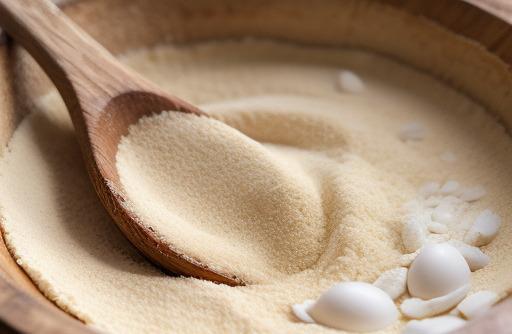
Choosing the right substitute for coconut flour depends on your preferences, dietary restrictions, and the specific recipe you are making. Here are some factors to consider when choosing a substitute:
-
Flavor: Consider the flavor profile of the substitute. Almond flour adds a nutty flavor, tapioca flour has a neutral taste, oat flour adds a slight nuttiness, and rice flour is tasteless. Choose the substitute that complements your recipe and desired taste.
-
Texture: Coconut flour has a unique texture, so it’s important to consider the texture of the substitute. Almond flour has a similar texture, tapioca flour adds lightness and chewiness, oat flour provides a hearty texture, and rice flour results in a slightly grittier texture.
-
Nutritional Profile: If you are looking for a specific nutritional profile, consider the substitute’s content. Almond flour is high in protein and healthy fats, tapioca flour is low in calories and fat, oat flour is high in fiber, and rice flour is low in fat and gluten-free.
-
Moisture Content: Coconut flour is highly absorbent, so you may need to consider the moisture content of the substitute. Almond flour and rice flour are less absorbent, while tapioca flour and oat flour require more liquid in the recipe.
Pro Tip: If you are unsure about which substitute to use, consider combining two or more substitutes to achieve the desired texture and flavor. This can create a unique blend that works well in your recipe.
Cooking With Substitutes For Coconut Flour
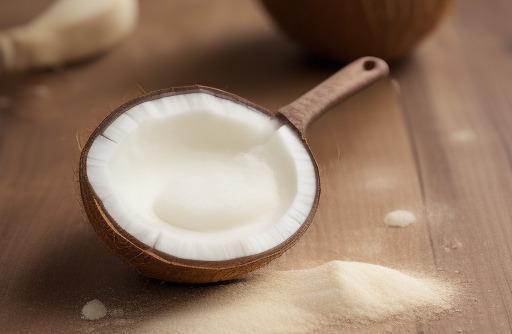
When cooking with substitutes for coconut flour, it’s important to keep in mind the unique properties of each substitute. Here are some tips for using the different substitutes:
-
Almond Flour: Use almond flour in a 1:1 ratio when substituting coconut flour. Add extra liquid to the recipe to prevent dryness.
-
Tapioca Flour: Replace coconut flour with tapioca flour in a 1:1 ratio. Combine tapioca flour with other flours for the best results.
-
Oat Flour: Replace coconut flour with oat flour in a 1:1 ratio. Increase the liquid in the recipe as oat flour absorbs more moisture.
-
Rice Flour: Substitute coconut flour with rice flour in a 1:1 ratio. Increase the liquid in the recipe to compensate for the lower absorbency.
Remember to experiment and adjust the recipe as needed to achieve the desired texture and taste.
Recipes Using Substitutes For Coconut Flour
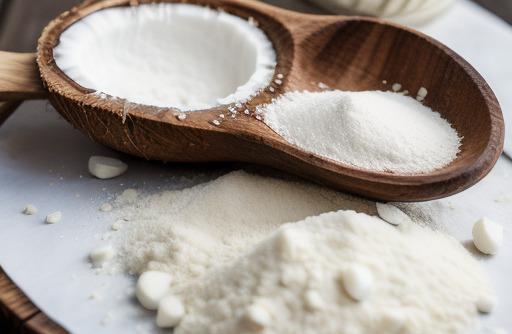
Here are a few recipes using substitutes for coconut flour:
- Almond Flour Pancakes
Ingredients:
- 1 cup almond flour
- 2 tablespoons coconut sugar
- 1 teaspoon baking powder
- ¼ teaspoon salt
- 2 large eggs
- 1/3 cup almond milk
- 1 teaspoon vanilla extract
Instructions:
-
In a bowl, whisk together almond flour, coconut sugar, baking powder, and salt.
-
In another bowl, whisk together eggs, almond milk, and vanilla extract.
-
Pour the wet ingredients into the dry ingredients and stir until well combined.
-
Heat a non-stick pan over medium heat and pour a small amount of batter onto the pan.
-
Cook until bubbles form on the surface, then flip and cook until golden brown on the other side.
-
Serve with your favorite toppings and enjoy!
-
Tapioca Flour Pizza Crust
Ingredients:
- 1 cup tapioca flour
- 1/2 cup almond flour
- 1/2 teaspoon salt
- 2 tablespoons olive oil
- 1/2 cup warm water
Instructions:
-
In a bowl, combine tapioca flour, almond flour, and salt.
-
Add olive oil and warm water to the dry ingredients and stir until a dough forms.
-
Knead the dough for a few minutes until it becomes smooth and elastic.
-
Place the dough on a baking sheet lined with parchment paper and use your hands to shape it into a round pizza crust.
-
Preheat the oven to 425°F (220°C) and bake the crust for 10 minutes.
-
Remove the crust from the oven and add your favorite toppings.
-
Return to the oven and bake for an additional 10-15 minutes, or until the cheese is melted and bubbly.
-
Slice and serve hot.
-
Oat Flour Chocolate Chip Cookies
Ingredients:
- 1 1/2 cups oat flour
- 1/2 teaspoon baking soda
- 1/4 teaspoon salt
- 1/2 cup coconut oil, melted
- 1/2 cup coconut sugar
- 1/4 cup maple syrup
- 1 teaspoon vanilla extract
- 1/2 cup chocolate chips
Instructions:
- Preheat the oven to 350°F (180°C) and line a baking sheet with parchment paper.
- In a bowl, whisk together oat flour, baking soda, and salt.
- In another bowl, combine melted coconut oil, coconut sugar, maple syrup, and vanilla extract.
- Pour the wet ingredients into the dry ingredients and stir until well combined.
- Fold in the chocolate chips.
- Drop tablespoons of dough onto the prepared baking sheet and flatten slightly.
- Bake for 10-12 minutes, or until the edges are golden brown.
- Allow the cookies to cool on the baking sheet before transferring to a wire rack to cool completely.
Storage And Shelf Life Of Substitutes
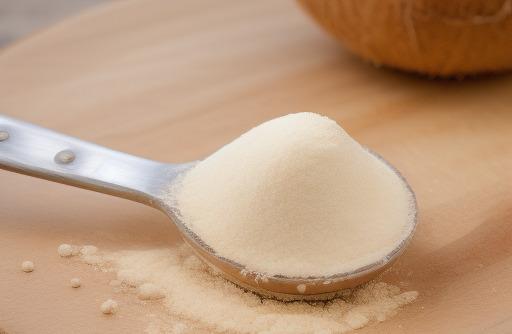
When using substitutes for coconut flour, it’s important to store them properly to maintain their freshness. Here are some storage tips for the different substitutes:
-
Almond Flour: Store almond flour in an airtight container in the refrigerator or freezer to prevent rancidity. It can last up to 6 months in the freezer.
-
Tapioca Flour: Tapioca flour should be stored in an airtight container in a cool, dark place. It has a long shelf life and can typically last up to 2 years if properly stored.
-
Oat Flour: Store oat flour in an airtight container in a cool, dark place to prevent spoilage. It can last up to 3 months in the pantry or up to 6 months in the refrigerator.
-
Rice Flour: Rice flour can be stored in an airtight container in the pantry for up to 6 months. It is best to use a moisture-proof container to prevent spoilage.
Conclusion
Finding a suitable substitute for coconut flour is not only important for those with dietary restrictions but also for those who want to experiment with different flavors and textures in their baking. Almond flour, tapioca flour, oat flour, and rice flour are all excellent substitutes that can be used in a variety of recipes. When choosing a substitute, consider the flavor, texture, and nutritional profile of each option. Experiment with different combinations and adjustments to achieve the best results in your baking. And most importantly, have fun exploring new ingredients and flavors in your recipes!
Pro Tip: Adding a bit of xanthan gum to your recipe can help improve the texture of baked goods when using substitutes for coconut flour. Xanthan gum acts as a binding agent and can help mimic the elasticity of gluten.
FAQS
What Are Some Natural Alternatives To Coconut Flour?
Some natural alternatives to coconut flour include almond flour, hazelnut flour, chickpea flour, oat flour, and tapioca flour.
Can People With Nut Allergies Use Coconut Flour Substitutes?
Yes, most of the coconut flour substitutes are nut-free and can be safely consumed by people with nut allergies. Chickpea flour, oat flour, and tapioca flour are excellent options for those with nut allergies.
Can I Use Wheat Flour Instead Of Coconut Flour In Recipes?
Yes, you can use wheat flour instead of coconut flour in recipes. However, wheat flour is not gluten-free, so it won’t be a suitable option for those following a gluten-free diet.
Which Substitute Flour Is The Best Option For Baking?
Almond flour is considered the best option for baking as it has a similar texture to coconut flour and works well in recipes that require coconut flour. It has a mild flavor and is a good source of protein.
How Do The Nutritional Values Of Coconut Flour Substitutes Compare To Coconut Flour?
The nutritional values of coconut flour substitutes vary slightly. However, most of them are low in carbohydrates, high in fiber, and rich in protein, making them healthy alternatives to coconut flour. For instance, almond flour is high in healthy fats, fiber, and protein, while chickpea flour is low in calories and high in protein and fiber.
Sources
About the Author Jenny
I'm Jenny, a housewife with an unwavering passion for food. My culinary journey began with my grandmother's kitchen, and it's now a full-fledged food blog. I've turned my love for cooking into a creative outlet, sharing recipes and stories with a global community of fellow food enthusiasts. It's proof that being a housewife can also mean pursuing your passions and savoring life's delectable moments.
